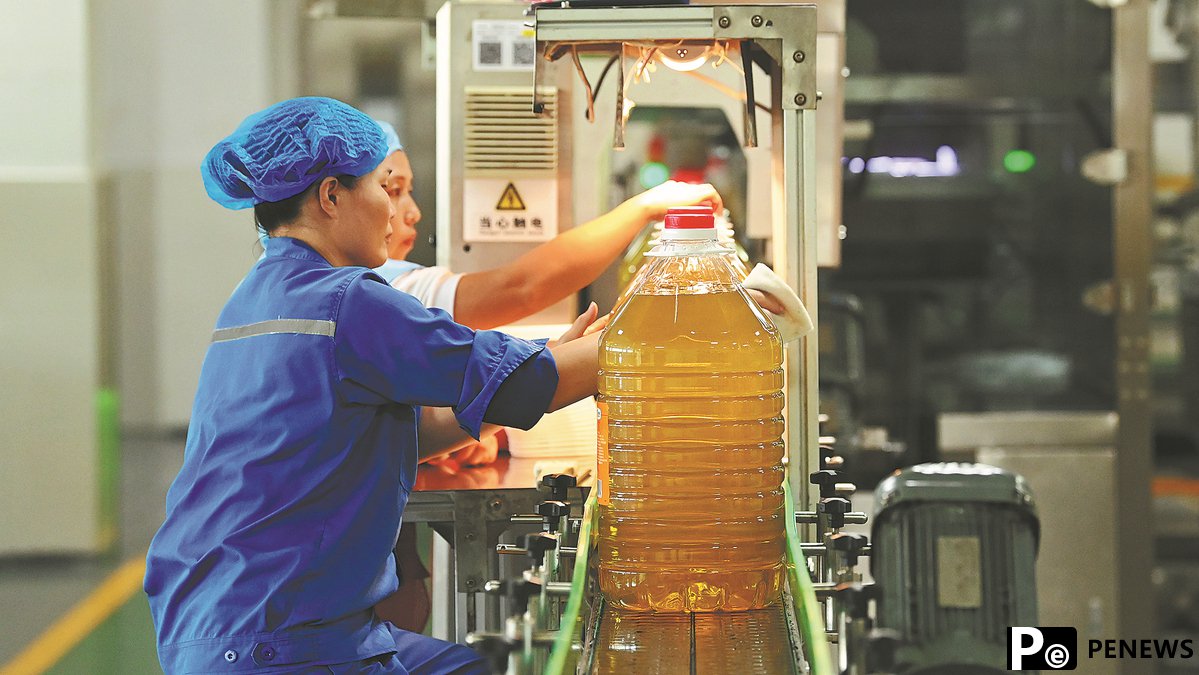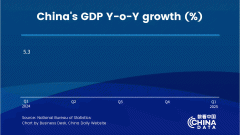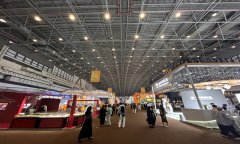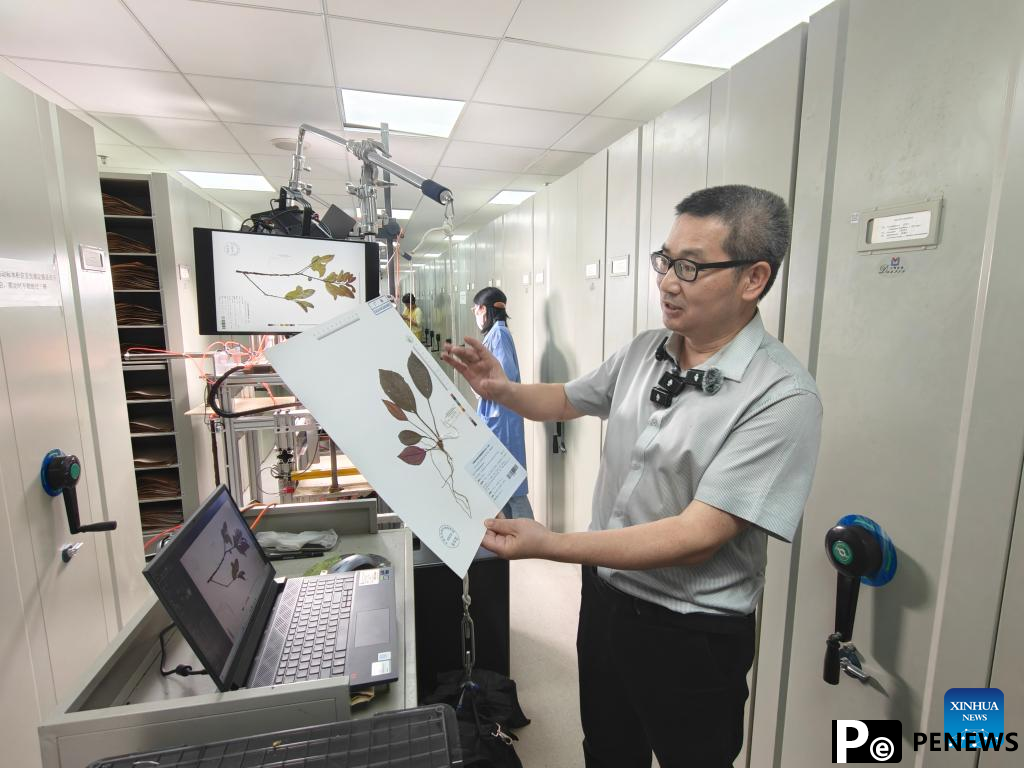Home>>
Chinese investors boost growth in MalaysiaBy Prime Sarmiento (China Daily) 08:32, April 16, 2025

Workers process palm oil imported from Malaysia on a production line at the factory owned by COFCO Corp at the China-Malaysia Qinzhou Industrial Park in the Guangxi Zhuang autonomous region on June 13, 2024. (Zhang Ailin/Xinhua)
Mazlim Husin, chief commercial officer of Kuantan Port, has personally seen how Chinese investments have transformed Kuantan — the capital city of the state of Pahang, which is located on the east coast of Peninsular Malaysia.
For Mazlim, the Malaysia-China Kuantan Industrial Park, or MCKIP, has "changed the landscape of the whole industrial development in Kuantan".
The park opened in 2013 and is located in the East Coast Economic Region. It covers more than 14 square kilometers and caters to heavy, medium and light industries, and features both residential and commercial facilities.
Alliance Steel, one of the biggest steelmakers in Malaysia, is based in MCKIP. Mazlim said the company's presence in Kuantan not only encourages other companies to invest in the city, but also helps boost socioeconomic development in the community as it provides jobs and sources iron ore and other minerals from the local community.
"You can see a lot of improvement and changes around us now. (The investments) just bring people together, and we just want (Kuantan) to grow," Mazlim told China Daily.
The MCKIP and the China-Malaysia Qinzhou Industrial Park in Qinzhou, Guangxi Zhuang autonomous region, are part of the "Two Countries, Twin Parks" collaboration model between China and Malaysia. More important, this model is a concrete representation of how Chinese investments have grown in Malaysia and have helped strengthen economic ties between the two nations.
'Win-win scenario'
China is one of the largest sources of foreign investments for Malaysia. Last year, China invested 28.2 billion ringgit ($6.4 billion) in Malaysia, accounting for over 16 percent of Malaysia's 170.4 billion ringgit foreign investment revenue, according to the Malaysian Investment Development Authority, or MIDA. The amount is nearly double the 14.5 billion ringgit Chinese investors posted in 2023 and is expected to create over 20,000 new jobs.
Safwan Nizar Johari, acting investment consul for the Malaysian consulate in Guangzhou, Guangdong province, said that in the past few years, most Chinese investments have been in the EV, battery and related industries. He said the two countries celebrated the 50th anniversary of diplomatic relations in 2024, and this strong diplomatic relationship has made Chinese companies more confident about investing in Malaysia.
Safwan said Malaysia implements business-friendly policies — including tax incentives, a 100 percent foreign equity ownership and long-term work visas for expatriates — that entice a lot of foreign investors. He said Malaysia is an "open and trading country".
Like China, Malaysia is a member of the Regional Comprehensive Economic Partnership, the world's biggest free trade pact. As a member of the Association of Southeast Asian Nations, Malaysia is also part of the ASEAN-China Free Trade Area.
Malaysia's multicultural population is also a huge draw for Chinese investors. Ethnic Chinese comprise about 20 percent of the Malaysian population — over 35 million people — and they can speak several languages, including Malay, Chinese and English.
"This contributes to the decision making of a Chinese company (in choosing an) investment destination in ASEAN," Safwan said.
"When they choose Malaysia, it feels like home. (It is) very comfortable for them to set up (a business) in Malaysia," he told China Daily.
And with Malaysia as this year's ASEAN chair, Safwan said Malaysia is inviting Chinese and other foreign companies to invest in Malaysia as a gateway to ASEAN and beyond.
"The theme of ASEAN this year is inclusivity and sustainability. So this is really in line with our main goal to invite and attract foreign companies to come to our country to invest and make Malaysia a hub, not just to penetrate the local market, but also to export globally," Safwan said, adding that in enticing foreign investors, Malaysia doesn't believe in a zero-sum game.
"We believe in the win-win scenario. When they invest in Malaysia, we want to grow with the other ASEAN countries. This is why we want to make Malaysia a (regional) hub and expand beyond Malaysia," he said.
Daniel Chua, senior vice-president of GP Energy Tech International, a subsidiary of battery manufacturer Gold Peak Technology Group, concurs with Safwan.
Chua said Chinese companies feel "comfortable" investing in Malaysia thanks to cultural similarities, common language and the Malaysians' cordial relationship with Chinese investors and employees.
Gold Peak, a Hong Kong-listed company, has three manufacturing plants in the southern Malaysian state of Johor. On Feb 19, the company submitted a letter of intent to Invest Johor, the state government's principal investment promotion agency, to build a $150 million nickel-based battery manufacturing facility and research and development center in the Johor-Singapore Special Economic Zone, or JS-SEZ.









